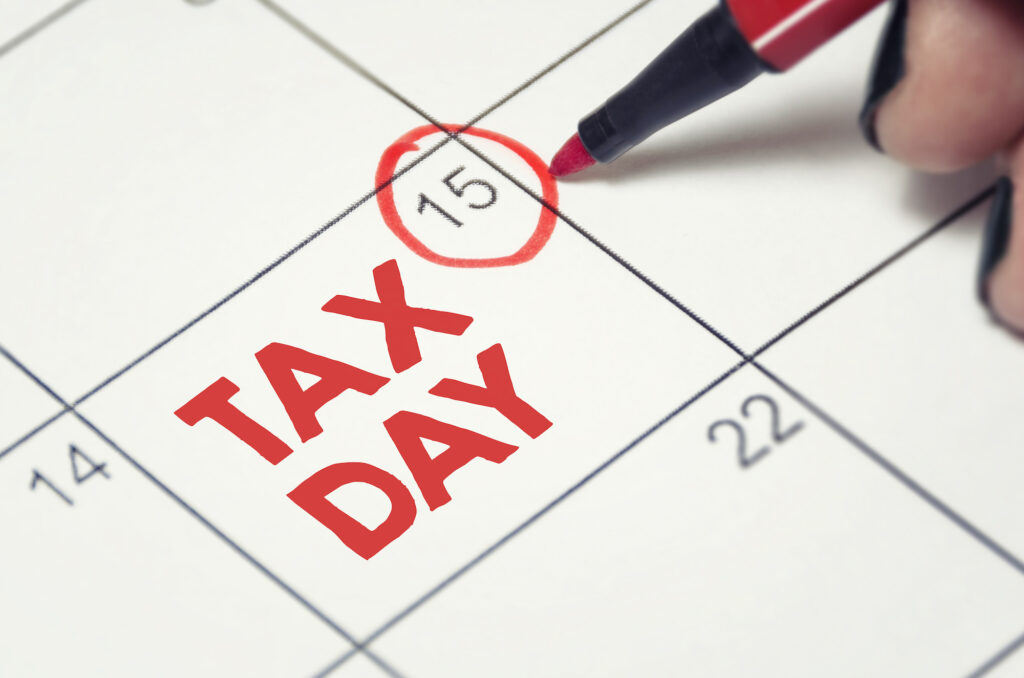Well, tax season has come and gone once more. Have you thought about anything you could have done better? Anything new that may have thrown you off, maybe you just got married or now you have children or a new business. Simply put, there are many factors that can change how you do your yearly taxes. You may not know what every form means, or what you can or cannot claim. This can hurt you in the long run, or you might miss out on extra money.
Taxes aren’t extensively taught in school, and it’s most likely you had a parent, spouse, or close friend to help you get through your taxes every year. This can be okay for some insight. Although, we highly encourage you to seek out professionals for your more detailed questions. Here are a few things to help you enter the tax season a bit more confident and prepared.
Around The Yearly Clock Of Tax Season
There are a few things for you to do to make the start of the new year less stressful, from adjusting your paycheck, keeping a record of what qualifies for deductions, and touching base with your tax advisor.
Adjusting the withholding amount on your paycheck makes the first, biggest, and simplest difference. This is a year-round option that you can easily keep up with. The IRS has shown that about 75% of Americans get a tax refund. That amount averages out to $2,400 per check. There are ways to get that money on your paycheck without owing by adjusting these deductions. However, deduct too much, and you’ll owe Uncle Sam come tax season next year. You can see what works best by visiting the IRS tax withholding estimator. There are a few reasons why you need to make adjustments depending on your situation. Anything from:
- New or current two-income families
- If your job situation has changed
- People with children who claim credits such as the Child Tax Credit
- If you have older dependents, including children age 17 or older
- Itemized deductions in 2018
- Or if you have high incomes and more complex tax returns
What To Keep And What To Toss
To make it simple, let’s look at what you can toss from last year that you won’t need this year.
Nothing. Keep it all.
Yup, sounds like a stretch, but pretty much every piece of paper matters. When businesses get tax audits, they usually look for information from the last three years. This goes the same when filing for yourself and your family. These are the essentials that you want to keep in mind for your taxes:
- Previous and current W-2 forms
- Pay stubs for the year (digital or printed)
- Home mortgage payment stubs, or a home purchase closing statement
- Last year’s tax return
- Receipts from anything you might claim as an itemized deduction
- Receipts from charities
- Car mileage (in case of business use)
- Receipts for business travel expenses
- Canceled checks
- Credit card statements and bank statements
- Medical bills
- 1099-G form
- 1099 forms
- Mobile phone bills
Keeping Your Records Straight
Basically, set aside a few hours every month can keep your records organized and ready for anything that may come into question. Create a folder at home, or on your computer with a backup ready. This way, you can start to learn each year about what you may or may not need. It might seem like a lot of work, but not having this could mean more work and stress next year.
Having a binder at home with this information printed and organized by each month can avoid anything getting overlooked. If you’re going the digital route, a folder with subfolders might be more manageable. You’re saving space and paper. There are also more ways to stay organized in a digital format. Just always remember to keep some sort of backup in case anything happens. This is also why digital might be better than a paper trail.
So, when touching base with your tax advisor, all of this information may come up. It’s not to securitize you in any way, but advisors are always looking to find ways to get you the best return possible and keep you out of trouble with the IRS.
Picking Your Advisor For Next Tax Season
There’s a lot to do on your end, but know that it’s to make your tax journey simple. Although going the digital route with computer software tax returns has nearly become the go-to route, an advisor might be better for you. The bottom line is, go see an advisor! It’s easy for deductions to get overlooked. Using the digital route might come across as convenient and simple, but taking the extra step to look at your financial situation will most likely make you more money, or keep you out of trouble. See what you’re missing out by visiting or contacting us at CRRC.
